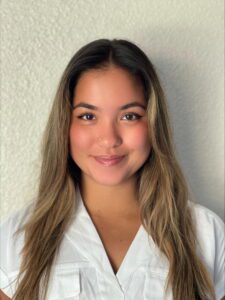1L Shanaya Henderson Helps Clients Seek Second Chances with Criminal Record Expungement Work

For Alternative Spring Break, 1L Shanaya Henderson worked with the San Francisco Public Defender’s Office Clean Slate Unit to prepare persuasive expungement petitions for clients.
1L Shanaya Henderson reflects on helping individuals expunge their criminal records during a week-long pro bono service trip with the San Francisco Public Defender’s Office for Alternative Spring Break.
- Strengthened legal writing and client interviewing skills to draft persuasive expungement declarations.
- Gained a deeper understanding of how criminal history can affect people’s lives after incarceration and the real-world impact of public defense work.
- Reaffirmed a strong interest in criminal law and discovered a potential career path as a public defender.
1L Shanaya Henderson:
During Alternative Spring Break, I volunteered with nine other students at the San Francisco Public Defender’s Office, helping individuals apply to expunge their criminal records.
Working with two attorneys in the Clean Slate Unit, I contacted formerly incarcerated clients—some of whom had reached out five to ten years ago but never received a response due to staffing shortages and a backlog. We re-engaged these clients and documented personal statements for their expungement applications. After attorney review, these statements are submitted to a judge.
The attorneys were incredibly appreciative and generous with their time, sharing insights about their careers and the challenges of under-resourced public defense work. Despite high caseloads, their passion and commitment to justice were clear and inspiring.
Over the week, our group connected with at least 100 clients, significantly reducing the backlog. We honed our legal writing skills by crafting persuasive declarations in the client’s voice and learned how to ask thoughtful questions that built strong narratives for expungement—covering remorse, rehabilitation, compliance with parole or probation, and the tangible benefits of a clean record for employment, housing, and stability.
We also practiced trauma-informed lawyering, being mindful of the emotional toll these conversations could take. Many clients had endured difficult life circumstances, and some were still facing serious consequences, like the risk of deportation decades after a conviction.
One client I spoke with had a record from 40 years ago and still couldn’t get a job or housing. Even arrests without convictions appear on background checks. Helping people clear their records gives them a fair chance to move forward and not be defined by their past.
This experience reaffirmed my interest in criminal law and opened my eyes to public defense as a possible career path. I’ve stayed in touch with one of the attorneys and now volunteer weekly.
Talking with clients and seeing their gratitude reminded me why I came to law school. It grounded me in the human side of the law—beyond doctrine and grades—and showed how lawyers can make a direct, meaningful impact.
The Evidence of Success series highlights UC Law SF students as they share how the college’s opportunities equip them with the experience, skills, and confidence to excel in the legal profession.